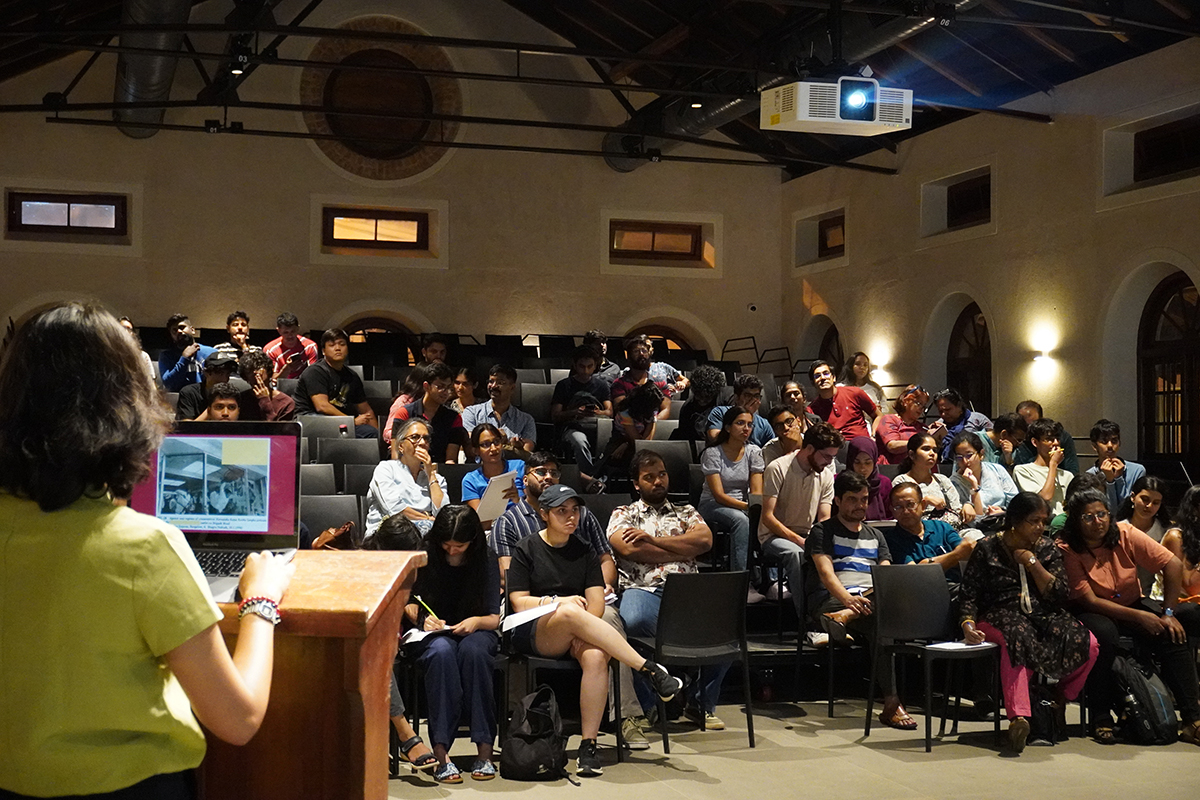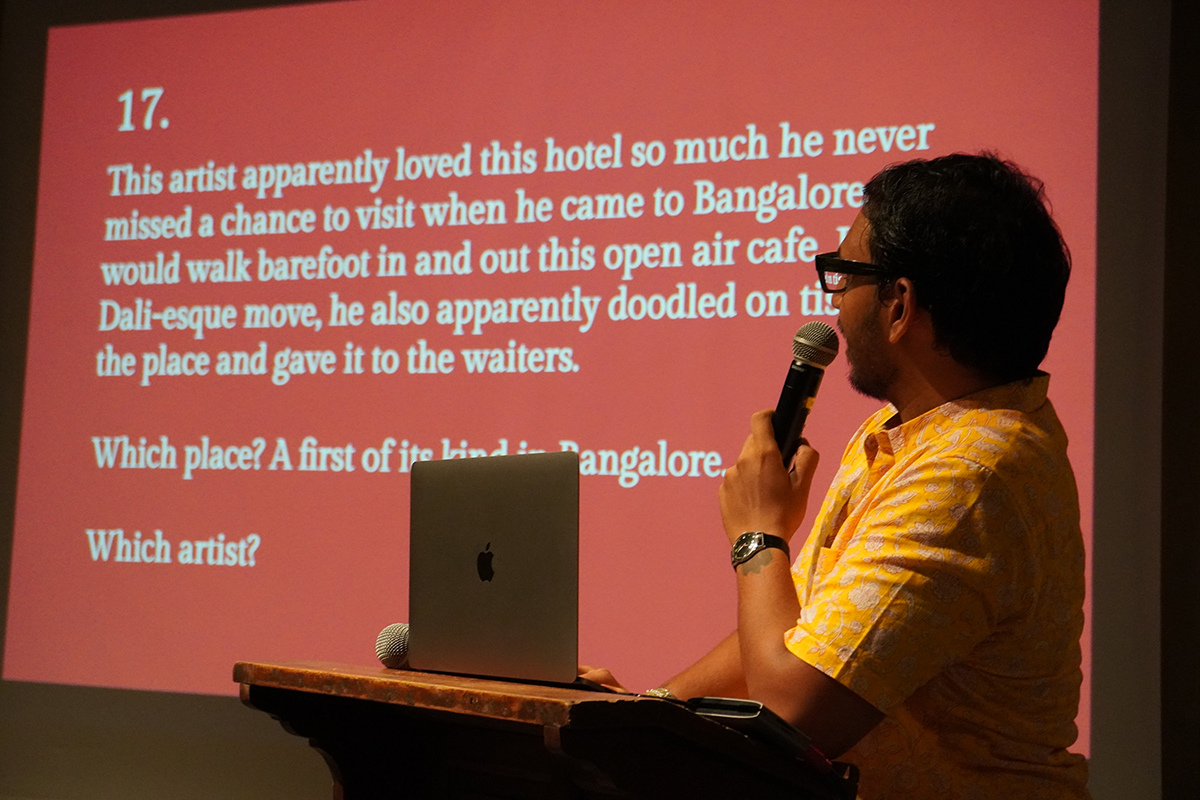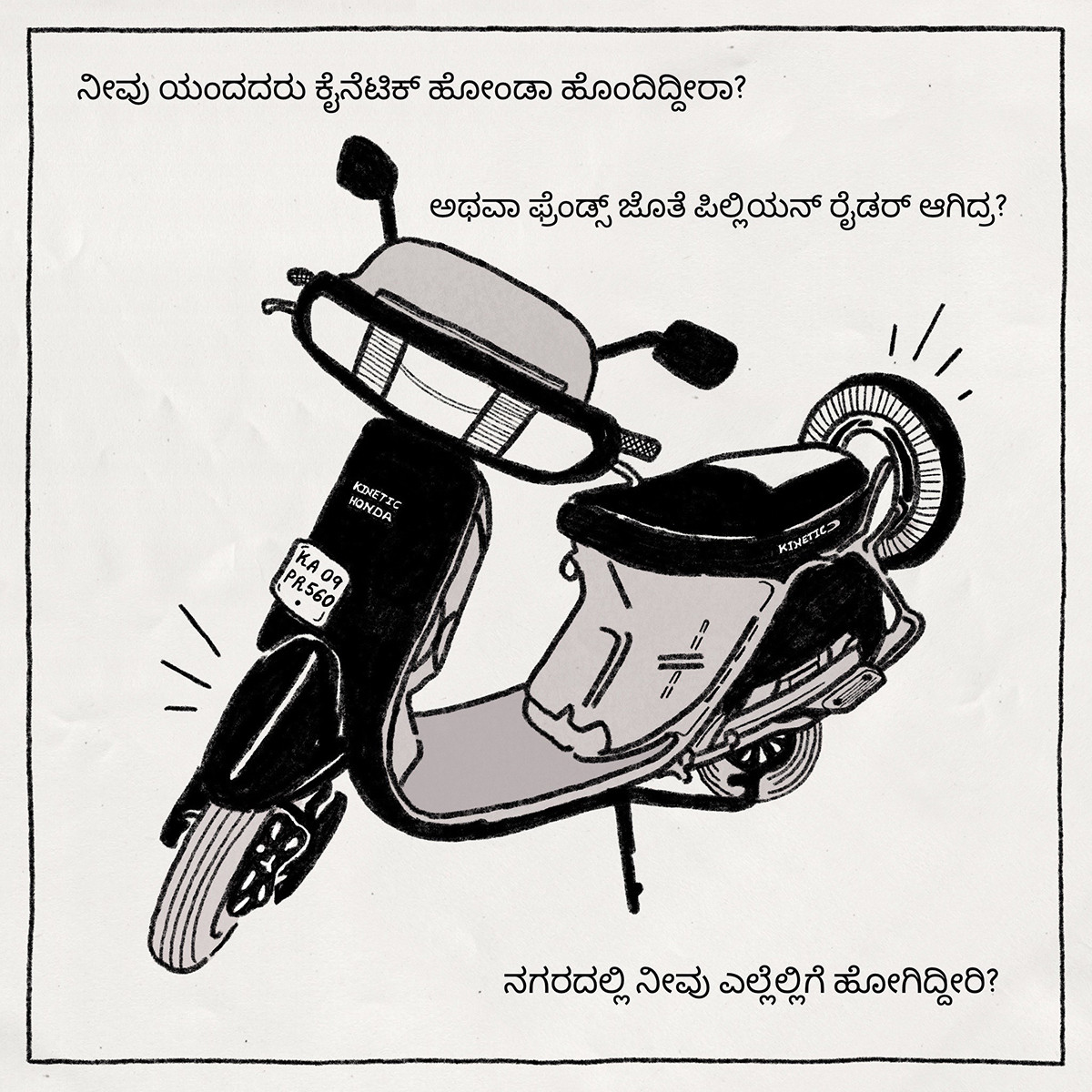Nikhita Thomas
Project Period: Five months
This Foundation Project implemented by IFA under Neighbourhood Engagements of Project 560 enables a mapping exercise that will outline some of the places where women hung out in Bangalore Cantonment between the years 1984 and 1994. Nikhita Thomas will be the Project coordinator.
Nikhita Thomas is a teacher-writer from Bangalore. She currently works as Assistant Professor at St. Joseph’s University, Bangalore, where she teaches English and Journalism. Her interests involve graphic novels, comics, zines and other forms employing the verbal-visual language, cultural commentary in women’s writing, the personal narrative, depictions of gossip and hanging out in literature and other media, film writing, quizzing, and design. Her writing and art have appeared in The Third Eye Portal, Goya Journal, Agents of Ishq, The Zinedabaad Collective, and The Open Dosa among others. Pranav VS is a teacher-writer from Bangalore. They work as an Assistant Professor at St. Joseph’s University, Bangalore. As a student of writing, they have written essays, short stories, and photo essays. They won the Barbra Naidu Prize for the personal essay in 2021, and the Azim Premji University Short Story Writing Competition in 2024. Given their experience, Nikhita is best placed to be the Project Coordinator for this Foundation Project of IFA. Pranav VS will be a collaborator on this project.
In a world where the design of the spaces we occupy is influenced and shaped by the experiences of men, this project seeks to explore the spatial relationships women have with the cities and neighbourhoods they call home. Engaging with questions such as, when are women rendered invisible in the city? When are they on display? How does the purpose of their movement through the city get women tossed between obscurity/safety and visibility/danger? And how can spaces designated for one kind of interaction are persuaded to house other exchanges given the spatial practices of women? Nikhita will conduct a mapping exercise by interviewing women who either lived in or to some capacity negotiated with neighbourhoods inside the limits of Bangalore Cantonment during the decade enveloped by the years 1984 and 1994.
Unlike the other parts of the city where women were constantly being monitored, the cantonment was a space for the military and the white man, and the work force was majorly from outside the Mysore state, which gave the women anonymity and relative freedom. The years between 1984 and 1994, marked the economic liberalisation under Rajiv Gandhi, and the arrival of private mode of transport like the Kinetic Honda for women added an ease to their mobility. During this time, Bangalore also saw the arrival of several pubs, which changed how college going women spent their time. The spread of single screen theatres also added to this expansion of spaces for leisure — where women could hang out without too many disturbances.
The Project Coordinator will use her contacts at the university; enquiring with the student-teacher networks, several journalists and writers in the city who visit her University, her associates at the Karnataka Quiz Association, people at Bangalore Tamil Sangam; to reach out and find the women who lived or made their way around the Cantonment area during the period between 1984 and 1994. The project coordinator aims to find and acknowledge the voice of multiple minority communities which otherwise gets lost in a mapping projects like this.
The coordinator will engage with the participants, and the neighbourhood community through an open quiz, tentatively titled - Who Says Bengaluru Cantt: A Quiz on the Cantonment, and an exhibition, featuring a blown-up map of Cantonment neighbourhood on which a heritage walk will be visualised. Snippets from the art essay book, collection of photographs and sketches, audio and video recordings of the interviews carried out, and other found material gathered from the women who participated in the project, will be on display.
The outcome of this project will be an art essay book, conceptualised as a heritage walk with free-flowing interplay of text and images of narratives of eight to ten women hanging out in the city. The Project Coordinator’s deliverables to IFA along with the final report will be the art essay book, and audio-visual documentations of the exhibition, quiz, and interviews.
This project suitably addresses the broad framework of IFA's Project 560 programme in how it seeks to locate women in the city and discover the spaces in which they hung out in the Cantonment area.
IFA will ensure that the implementation of this project happens in a timely manner and funds expended are accounted for. After the project is finished and all deliverables are submitted, IFA will put together a Final Evaluation to share with Trustees.
This project is made possible with support from BNP Paribas India Foundation.




